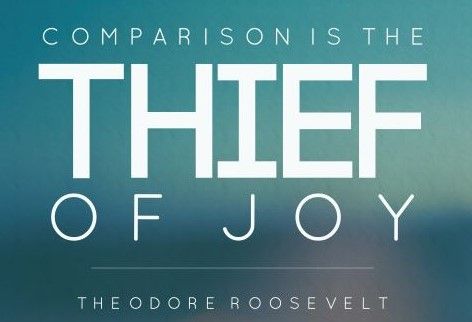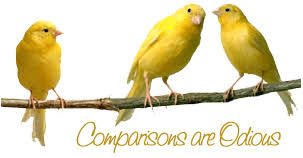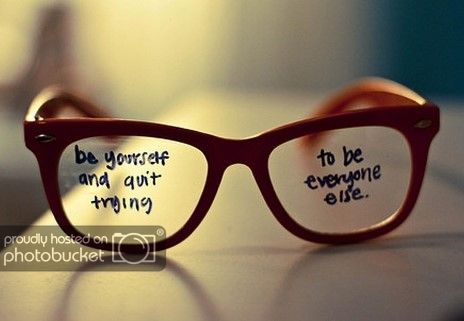Do You Know Comparisons Are Odious?
Mar 09, 2019 • 779 views
This proverb traces its roots in the mid 15th century. John Lydgate, a poet; a monk used this for the first time in his debate between the horse, goose and sheep. It was then adopted by various writers but it gained popularity worldwide after the use of this proverb by Shakespeare in his play ‘Much Ado About Nothing’. He brought life to it by employing it in a unique way, which says-‘Comparisons are odorous’
Coming back to the original form of the proverb which defines, that comparing two similar or different things is unpleasant or repulsive. Whether comparing same features of two different things or comparing different features of similar things lead to destructive results, depending upon what we are comparing and with whom we are comparing.
Ever since industrialization happened, the competition level has increased.We all compare every single thing before bringing it into use in our lives. We make comparisons between the clothes, gadgets, eatables and many more such things. Here, the comparisons are justifiable and should be made in order to yield profitable results. But sometimes we end up comparing things which lead to irredeemable results. For example, comparing your power, status, beauty, potential, nature etc all give rise to degrading scenes which infect the mind like a poison.

It can’t be compartmentalized with different hierarchy levels. Elite class, Middle class, lower class all the chains do compare things. It eventually becomes our habit and sometimes becomes an essential trait. Sometimes people derive results from irrational comparisons. These results are then mistaken as the individuals identity for example a comparison between two students. It is very important to follow the right approach to make comparisons. Wrong approach will not benefit you. For example , a man compares his unhealthy relationship with a healthy relationship. This will not give him room for developments rather it will make him feel miserable. Comparing your power with the one, who is inferior to you, will show only your superiority. Comparing one’s economical status with others will make you feel weak. Comparing your outlooks with others will bring your morale down. Comparisons between two brothers or sisters might create complex. Comparing one life with others life is also not suitable. All of these comparisons pave a way towards the negative side. We often compare such things to show our wealth, power, status. But in that synthesis, we do harm to us or to others.

Why do we always try to portray ourselves superior to others? Why do we try to prove our every point correct? Why do we try to show that what we have is the best thing in the world? Why do we demotivate others? Why do we always try to find faults in others? Why do we forget a person for his single wrong act? Why can’t he be remembered for his good acts? Why do we have trouble in accepting things?Why do we always compare the things which don’t even need comparisons, like comparing two different individuals? The questions are endless but the answer remains constant – ‘because we compare’. This is an unwise thing to do. Everyone has their thick and thins; let’s learn to accept people for what they are –
Albert Einstein famously said, ‘Everybody is a genius. But if you judge a fish by its ability to climb a tree, it will live its whole life believing that it is stupid’.
Don’t be so comparative always. This calculative attitude will limit your vision and will destroy your relationships. Beware of your actions! You might never know how your actions will affect others. It might change someone’s life. Stop showing your superiority over others and stop feeling inferior to others. Everyone has a talent, take pride in what you have. Don’t feel jealous of others. Don’t make inappropriate comparisons because it will lead you nowhere. Be yourself and praise yourself for ‘what you are’.Every individual is special!

